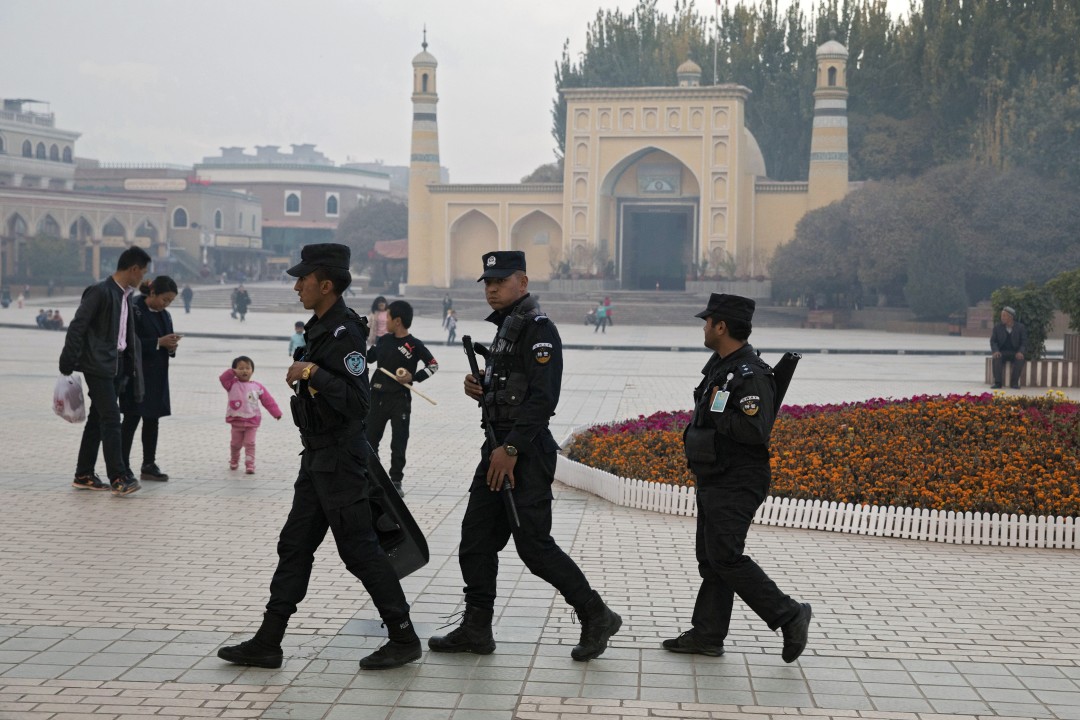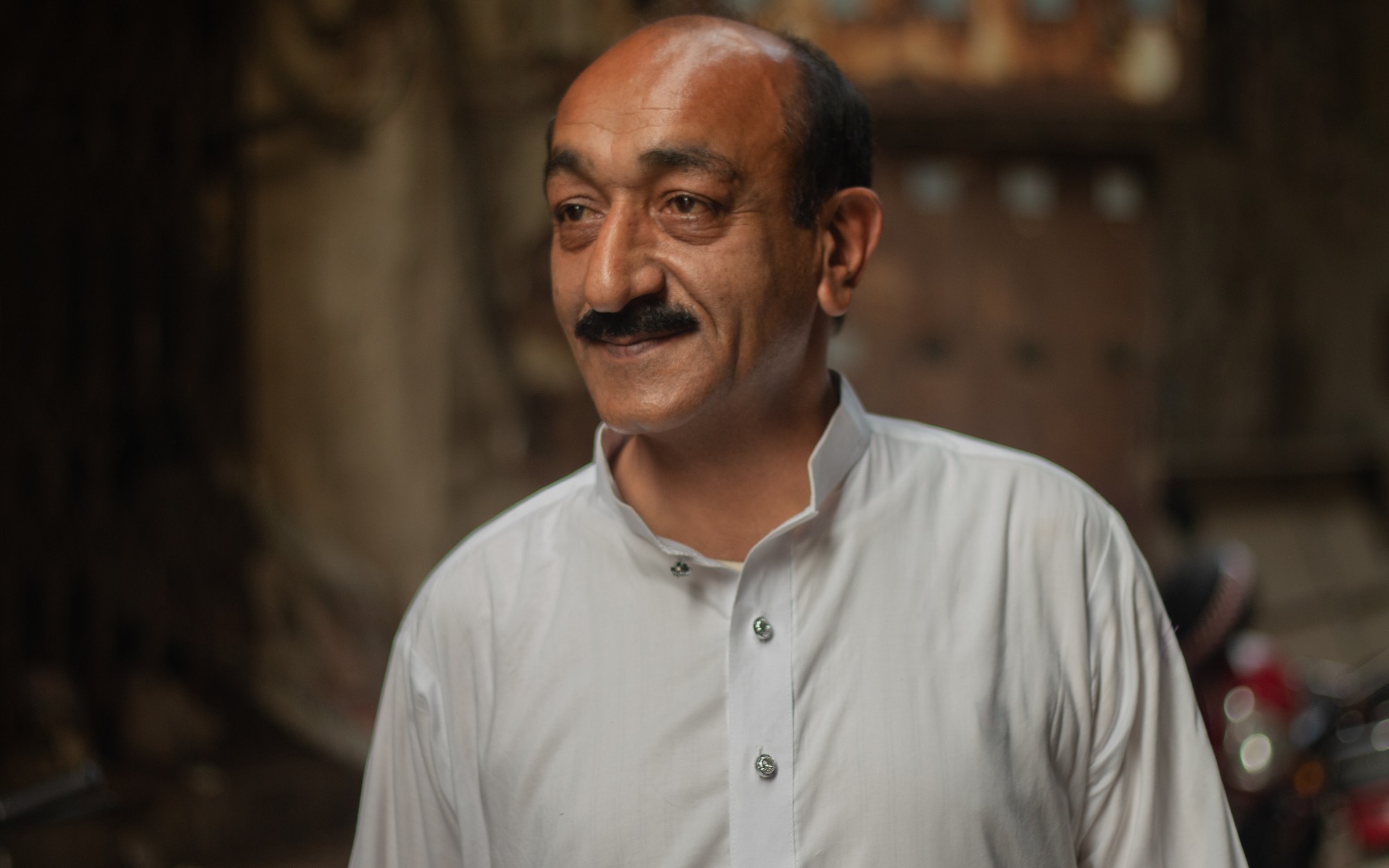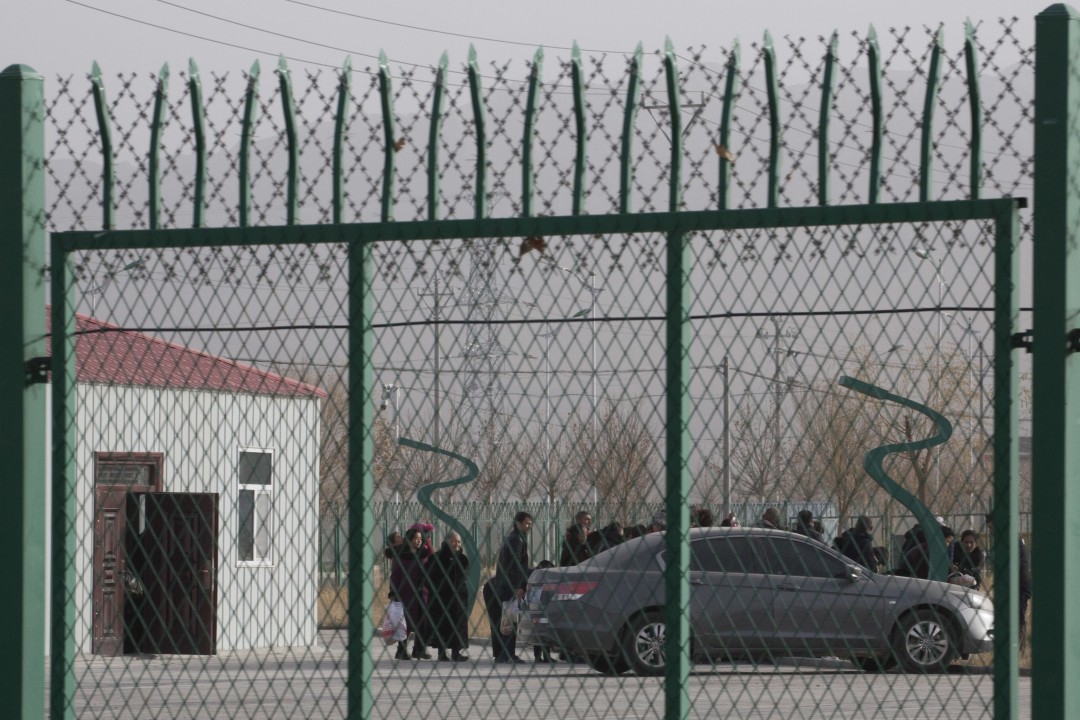0%

Uighur security personnel patrol near the Id Kah Mosque in Kashgar, Xinjiang, in 2017. (Photo: Ng Han Guan / Associated Press)
LOS ANGELES: The Chinese government’s campaign against Uyghurs has spilled across its borders, impacting the lives of hundreds of Pakistanis. The silence of the Pakistan regime over the atrocities meted out by China has made the matter worse for the natives.
Sakandar Hayat is one such Pakistani who have suffered from China’s suppression of Muslims in the Xinjiang territory. His Uyghur wife was detained in Kashgar, in China’s Xinjiang region, and sent to prison in 2017 and his son was arrested from the Pakistan-China border in front of him, Los Angeles Times reported.
Hayat since then is grappling to reunite with his family.
Hayat and his teenage boy Arafat left northwestern China and crossed the border into Hayat’s native Pakistan in 2017. It was a journey to bring father and son closer together. But it would end up tearing their family apart.
The duo had been in Pakistan for three weeks when they received a phone call from Xinjiang that Hayat’s wife had been detained. They rushed to the Pakistan-China border where Chinese Police were waiting. Arafat was arrested for questioning.

“Do not separate us,” Hayat begged the police. “Question him in front of me. I will be silent and he will speak the truth.” You will have your son back in a week,” the police told him that day in 2017.
Hayat would have no contact with Arafat for the next two years.
“It is very hard to leave your heart, your children, to live in a place worse than a prison,” Hayat said. After his wife and Arafat, who was then 19, were detained, Hayat was denied a visa to China for two years. The couple’s two daughters, who were 7 and 12 at the time, were sent to an orphanage in Kashgar without his consent.
He pleaded with Chinese and Pakistani officials for information regarding his family with no response until 2019, when Chinese officials said his son was receiving “education,” a euphemism for the camps where Beijing says minorities are receiving “vocational training” to combat “extremism, separatism and terrorism.”Hayat is one of hundreds of Pakistanis who have suffered from China’s suppression of Muslims in the Xinjiang territory that is home to about 10 million ethnic Uyghurs, The Times reported.
The Times has interviewed Pakistanis married to Uyghurs to understand how Chinese government policies and Pakistan’s silence destroy the lives of innocent families.
Mohammed, a Uyghur from southern Xinjiang who had been doing business between China and Pakistan, was detained for seven months. He gave horrific details about how these detainees go through physical and mental torture in the camps.
He was arrested when he crossed the border in June 2018, he said, then held in a camp with his hands chained together in a room of 35 people.
He explained that they woke up at 4 am for lectures about the Chinese Communist Party’s care for Uyghurs, he said.
“The party is feeding you,” he remembered being told. “Uyghurs are nothing without this party. If there was no Communist Party, Uyghurs would have died of hunger.”He and others were then forced to sing songs praising the party and Xi Jinping (Chinese President).

They were fed hot water and a piece of bread, and given five hours of Chinese-language lessons. No one was allowed to speak Uyghur, Mohammed said.
The camp guards would make detainees watch as they burned prayer mats, beads and religious books that they had confiscated from Uyghur homes.
“You people are not Turks. Uyghurs are Chinese. You are one of us, Chinese,” they would tell the detainees.
“If you talk slowly they will beat you. If you become loud they will beat you more. I asked them, how should I talk? How should I answer? Don’t beat me, I will answer everything clearly,” Mohammed said. But the beatings persisted.
Mohammed was finally released on condition that he bring his wife and children in Pakistan back to Xinjiang and act as an informer for Chinese authorities. His other family members in Xinjiang would be collateral.
“But I will not go back to China,” he told The Times in an interview in Rawalpindi. “China is a dungeon, our homes are torture cells, and death or execution is waiting for me and my family there,” he added.
The Times said that the silence of Pakistan, which has been outspoken on the oppression of Muslims across the world but has refrained from criticising China — a major economic benefactor and potential provider of COVID-19 vaccines — reflects how many nations are increasingly wary of jeopardising their ties to Beijing.
Classified documents known as the China Cables, accessed last year by the International Consortium of Investigative Journalists, threw light on how the Chinese government uses technology to control Uyghurs worldwide.
China put a million or more Uyghurs and other Muslim minorities into detention camps and prisons in Xinjiang over the last three years under Jinping’s directives to “show absolutely no mercy” in the struggle against terrorism, infiltration and separatism”, revealed the leaked documents released in US media.

However, China regularly denies such mistreatment and says the camps provide vocational training.
Uyghur activists and human rights groups have countered that many of those held are people with advanced degrees and business owners who are influential in their communities and have no need for any special education.
People in the internment camps have described being subjected to forced political indoctrination, torture, beatings, and denial of food and medicine, and say they have been prohibited from practising their religion or speaking their language.
Now, as Beijing denies these accounts, it also refuses to allow independent inspections into the regions, at the same time, which further fuels reports related to China’s atrocities on the minority Muslims.
(Los Angeles Times)